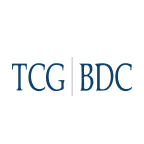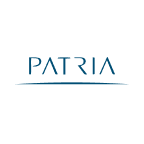APO

Apollo Global Management, Inc.
APO
(0.8)170,21 USD
1.67% ROA
37.74% ROE
13.97x PER
77.513.577.400,00 USD
64.26% DER
1.31% Yield
18.34% NPM
Apollo Global Management, Inc. Stock Analysis
Apollo Global Management, Inc. Fundamental Analysis
Fundamental analysis in stock investing is like studying the foundation of a house before buying it. It involves looking at a company's financial health, like its earnings, assets, and debts, to determine if it's a good investment based on its fundamental strength and potential for growth.
| # | Analysis | Rating |
|---|---|---|
| 1 |
Dividend
The company's consistent dividend payouts over the past five years exemplify its strong commitment to providing shareholders with reliable returns, making it an attractive investment option. |
|
| 2 |
DER
The stock maintains a fair debt to equity ratio (82%), indicating a reasonable balance between the money it owes and the ownership it possesses. |
|
| 3 |
ROE
The stock's ROE indicates a negative return (-5.21%) on shareholders' equity, suggesting poor financial performance. |
|
| 4 |
ROA
The stock's ROA (-0.05%) indicates that it's not effectively utilizing its assets to generate profits, making it a less favorable option to invest and earn consistent returns. |
|
| 5 |
PBV
The stock's high Price-to-Book Value (P/BV) ratio (6.11x) suggests it's overvalued, potentially making it an expensive investment. |
|
| 6 |
Revenue Growth
Company's revenue has remained stagnant over the past three years, indicating a lack of growth and making it a less favorable option. |
|
| 7 |
Net Profit Growth
Over the past five years, this company's net profit has failed to exhibit any growth, indicating a stagnant financial performance and making it a less favorable choice for potential investors. |
|
| 8 |
Assets Growth
Company's revenue has stayed stagnant, showing no signs of improvement and making it a less favorable choice. |
|
| 9 |
Graham Number
The Graham number calculation reveals that this company's stock price is potentially inflated, implying that it may not be a desirable investment option. |
|
| 10 |
Dividend Growth
Investors should note the company's stagnant dividend growth over the past three years, indicating limited profitability and potentially diminishing returns. |
|
| 11 |
Buffet Intrinsic Value
The company's stock shows signs of being overvalued (-30.078) according to Warren Buffett's formula, indicating a potential downside as its market price exceeds its estimated intrinsic value. |
Apollo Global Management, Inc. Technical Analysis
Technical analysis in stock investing is like reading the patterns on a weather map to predict future weather conditions. It involves studying past stock price movements and trading volumes to make predictions about where a stock's price might go next, without necessarily looking at the company's financial health.
| # | Analysis | Recommendation |
|---|---|---|
| 1 | Awesome Oscillator | Hold |
| 2 | MACD | Buy |
| 3 | RSI | Hold |
| 4 | Stoch RSI | Sell |
Apollo Global Management, Inc. Price Chart
Financial Statements
Financial statements are like report cards for companies. They show how much money a company makes (income statement), what it owns and owes (balance sheet), and where it spends its money (cash flow statement), helping stock investors understand if a company is healthy and worth investing in.
Income Statements
An income statement for a company is like a scoreboard for its profits and losses. It shows how much money the company made (revenue) and how much it spent to make that money (expenses), helping stock investors see if a company is making a profit or not.
Revenue in stock investing is the total amount of money a company earns from its sales, and it's a key factor that investors consider to assess a company's financial performance and growth potential.
| Year | Revenue | Growth |
|---|---|---|
| 2006 | 346.480.000 | |
| 2007 | 637.850.000 | 45.68% |
| 2008 | -266.705.000 | 339.16% |
| 2009 | 966.728.000 | 127.59% |
| 2010 | 2.109.898.000 | 54.18% |
| 2011 | 171.632.000 | -1129.32% |
| 2012 | 2.859.965.000 | 94% |
| 2013 | 3.733.571.000 | 23.4% |
| 2014 | 1.560.083.000 | -139.32% |
| 2015 | 1.041.670.000 | -49.77% |
| 2016 | 1.970.384.000 | 47.13% |
| 2017 | 2.610.173.000 | 24.51% |
| 2018 | 1.093.065.000 | -138.79% |
| 2019 | 2.931.849.000 | 62.72% |
| 2020 | 2.354.000.000 | -24.55% |
| 2021 | 5.951.000.000 | 60.44% |
| 2022 | 10.968.000.000 | 45.74% |
| 2023 | 10.380.000.000 | -5.66% |
| 2023 | 32.644.000.000 | 68.2% |
| 2024 | 24.072.000.000 | -35.61% |
Research and Development Expenses are the costs a company incurs to create and improve its products or services, which can be important for investors to evaluate a company's innovation and potential for future growth.
| Year | Research and Development Expenses | Growth |
|---|---|---|
| 2006 | 0 | |
| 2007 | 0 | 0% |
| 2008 | 0 | 0% |
| 2009 | 0 | 0% |
| 2010 | 0 | 0% |
| 2011 | 0 | 0% |
| 2012 | 0 | 0% |
| 2013 | 0 | 0% |
| 2014 | 0 | 0% |
| 2015 | 0 | 0% |
| 2016 | 0 | 0% |
| 2017 | 0 | 0% |
| 2018 | 0 | 0% |
| 2019 | 0 | 0% |
| 2020 | 0 | 0% |
| 2021 | 0 | 0% |
| 2022 | 0 | 0% |
| 2023 | 0 | 0% |
| 2023 | 0 | 0% |
| 2024 | 0 | 0% |
General and Administrative Expenses are the costs a company incurs to run its day-to-day operations, such as office rent, salaries, and utilities, which investors consider to understand a company's overall efficiency and management effectiveness.
| Year | General and Administrative Expenses | Growth |
|---|---|---|
| 2006 | 0 | |
| 2007 | 0 | 0% |
| 2008 | 0 | 0% |
| 2009 | 0 | 0% |
| 2010 | 0 | 0% |
| 2011 | 0 | 0% |
| 2012 | 189.861.000 | 100% |
| 2013 | 221.555.000 | 14.31% |
| 2014 | 220.120.000 | -0.65% |
| 2015 | 210.587.000 | -4.53% |
| 2016 | 247.000.000 | 14.74% |
| 2017 | 257.858.000 | 4.21% |
| 2018 | 266.444.000 | 3.22% |
| 2019 | 330.342.000 | 19.34% |
| 2020 | 818.000.000 | 59.62% |
| 2021 | 3.197.000.000 | 74.41% |
| 2022 | 1.698.000.000 | -88.28% |
| 2023 | 2.092.000.000 | 18.83% |
| 2023 | 872.000.000 | -139.91% |
| 2024 | 2.528.000.000 | 65.51% |
EBITDA stands for Earnings Before Interest, Taxes, Depreciation, and Amortization. It is a measure that helps stock investors analyze a company's profitability by looking at its earnings without considering certain expenses. This helps to get a clearer picture of the company's financial performance and its ability to generate cash flow.
| Year | EBITDA | Growth |
|---|---|---|
| 2006 | 1.805.604.000 | |
| 2007 | -918.540.000 | 296.57% |
| 2008 | -3.145.157.000 | 70.8% |
| 2009 | -42.608.000 | -7281.61% |
| 2010 | 83.537.000 | 151% |
| 2011 | -1.325.054.000 | 106.3% |
| 2012 | 2.987.017.000 | 144.36% |
| 2013 | 2.035.087.000 | -46.78% |
| 2014 | 708.822.000 | -187.11% |
| 2015 | 311.000.000 | -127.92% |
| 2016 | 978.495.000 | 68.22% |
| 2017 | 1.735.067.000 | 43.6% |
| 2018 | 305.983.000 | -467.05% |
| 2019 | 1.328.153.000 | 76.96% |
| 2020 | 1.430.000.000 | 7.12% |
| 2021 | 2.658.000.000 | 46.2% |
| 2022 | -1.688.000.000 | 257.46% |
| 2023 | 5.652.000.000 | 129.87% |
| 2023 | 9.120.000.000 | 38.03% |
| 2024 | 8.240.000.000 | -10.68% |
Gross profit is the money a company makes from selling its products or services after subtracting the cost of producing or providing them, and it is an important measure for investors to understand a company's profitability.
| Year | Gross Profit | Growth |
|---|---|---|
| 2006 | 79.708.000 | |
| 2007 | -812.480.000 | 109.81% |
| 2008 | -1.110.305.000 | 26.82% |
| 2009 | -528.282.000 | -110.17% |
| 2010 | 166.548.000 | 417.2% |
| 2011 | -1.169.146.000 | 114.25% |
| 2012 | 1.114.604.000 | 204.89% |
| 2013 | 2.139.336.000 | 47.9% |
| 2014 | 819.524.000 | -161.05% |
| 2015 | 504.241.000 | -62.53% |
| 2016 | 1.121.197.000 | 55.03% |
| 2017 | 1.574.768.000 | 28.8% |
| 2018 | 518.066.000 | -203.97% |
| 2019 | 1.670.762.000 | 68.99% |
| 2020 | 1.726.000.000 | 3.2% |
| 2021 | 5.173.000.000 | 66.63% |
| 2022 | 10.041.000.000 | 48.48% |
| 2023 | 9.364.000.000 | -7.23% |
| 2023 | 31.617.000.000 | 70.38% |
| 2024 | 22.908.000.000 | -38.02% |
Net income in stock investing is like the money a company actually gets to keep as profit after paying all its bills, and it's an important measure to understand how well a company is doing financially.
| Year | Net Profit | Growth |
|---|---|---|
| 2006 | 372.979.000 | |
| 2007 | -569.651.000 | 165.48% |
| 2008 | -912.258.000 | 37.56% |
| 2009 | -155.176.000 | -487.89% |
| 2010 | 94.617.000 | 264% |
| 2011 | -468.826.000 | 120.18% |
| 2012 | 310.957.000 | 250.77% |
| 2013 | 659.391.000 | 52.84% |
| 2014 | 168.229.000 | -291.96% |
| 2015 | 134.497.000 | -25.08% |
| 2016 | 402.850.000 | 66.61% |
| 2017 | 629.104.000 | 35.96% |
| 2018 | -10.376.000 | 6163.07% |
| 2019 | 843.193.000 | 101.23% |
| 2020 | 157.000.000 | -437.07% |
| 2021 | 1.839.000.000 | 91.46% |
| 2022 | -1.961.000.000 | 193.78% |
| 2023 | 2.728.000.000 | 171.88% |
| 2023 | 5.047.000.000 | 45.95% |
| 2024 | 3.412.000.000 | -47.92% |
EPS, or earnings per share, is a measure that shows how much profit a company has earned for each outstanding share of its stock, and it is important for stock investors as it helps understand the profitability of a company and compare it with other companies in the market.
| Year | Earning per Share (EPS) | Growth |
|---|---|---|
| 2006 | 4 | |
| 2007 | -6 | 160% |
| 2008 | -9 | 44.44% |
| 2009 | -2 | -800% |
| 2010 | 1 | 0% |
| 2011 | -4 | 100% |
| 2012 | 2 | 300% |
| 2013 | 4 | 50% |
| 2014 | 1 | 0% |
| 2015 | 1 | 0% |
| 2016 | 2 | 100% |
| 2017 | 3 | 33.33% |
| 2018 | 0 | 0% |
| 2019 | 4 | 100% |
| 2020 | 0 | 0% |
| 2021 | 7 | 100% |
| 2022 | -3 | 333.33% |
| 2023 | 3 | 250% |
| 2023 | 8 | 75% |
| 2024 | 5 | -60% |
Cashflow Statements
Cashflow statements show the movement of money in and out of a company, helping stock investors understand how much money a company makes and spends. By examining cashflow statements, investors can assess if a company is generating enough cash to pay its bills, invest in growth, and provide returns to stockholders.
Free cash flow is the leftover cash that a company generates after covering its operating expenses and capital expenditures, which is important for stock investors as it shows how much money a company has available to invest in growth, pay dividends, or reduce debt.
| Year | Free Cashflow | Growth |
|---|---|---|
| 2006 | -1.832.543.000 | |
| 2007 | 848.885.000 | 315.88% |
| 2008 | 95.769.000 | -786.39% |
| 2009 | 92.144.000 | -3.93% |
| 2010 | -223.652.000 | 141.2% |
| 2011 | 722.536.000 | 130.95% |
| 2012 | 254.292.000 | -184.14% |
| 2013 | 1.017.805.000 | 75.02% |
| 2014 | -378.866.000 | 368.65% |
| 2015 | 576.470.000 | 165.72% |
| 2016 | 608.904.000 | 5.33% |
| 2017 | 799.729.000 | 23.86% |
| 2018 | 799.518.000 | -0.03% |
| 2019 | 1.043.199.000 | 23.36% |
| 2020 | -1.675.992.000 | 162.24% |
| 2021 | 999.308.000 | 267.72% |
| 2022 | 3.586.475.000 | 72.14% |
| 2023 | -364.000.000 | 1085.3% |
| 2023 | -17.800.000.000 | 97.96% |
| 2024 | 841.000.000 | 2216.53% |
Operating cash flow represents the cash generated or consumed by a company's day-to-day operations, excluding external investing or financing activities, and is crucial for stock investors as it shows how much cash a company is generating from its core business operations.
| Year | Operating Cashflow | Growth |
|---|---|---|
| 2006 | -1.825.504.000 | |
| 2007 | 855.741.000 | 313.32% |
| 2008 | 153.071.000 | -459.05% |
| 2009 | 107.993.000 | -41.74% |
| 2010 | -218.051.000 | 149.53% |
| 2011 | 743.821.000 | 129.31% |
| 2012 | 265.551.000 | -180.1% |
| 2013 | 1.025.382.000 | 74.1% |
| 2014 | -372.917.000 | 374.96% |
| 2015 | 582.673.000 | 164% |
| 2016 | 615.260.000 | 5.3% |
| 2017 | 808.258.000 | 23.88% |
| 2018 | 814.259.000 | 0.74% |
| 2019 | 1.082.694.000 | 24.79% |
| 2020 | -1.616.430.000 | 166.98% |
| 2021 | 1.064.046.000 | 251.91% |
| 2022 | 3.789.000.000 | 71.92% |
| 2023 | -364.000.000 | 1140.93% |
| 2023 | 6.602.000.000 | 105.51% |
| 2024 | 841.000.000 | -685.02% |
Capex, short for capital expenditures, refers to the money a company spends on acquiring or upgrading tangible assets like buildings, equipment, or technology, which is important for stock investors as it indicates how much a company is investing in its infrastructure to support future growth and profitability.
| Year | Capital Expenditure | Growth |
|---|---|---|
| 2006 | 7.039.000 | |
| 2007 | 6.856.000 | -2.67% |
| 2008 | 57.302.000 | 88.04% |
| 2009 | 15.849.000 | -261.55% |
| 2010 | 5.601.000 | -182.97% |
| 2011 | 21.285.000 | 73.69% |
| 2012 | 11.259.000 | -89.05% |
| 2013 | 7.577.000 | -48.59% |
| 2014 | 5.949.000 | -27.37% |
| 2015 | 6.203.000 | 4.09% |
| 2016 | 6.356.000 | 2.41% |
| 2017 | 8.529.000 | 25.48% |
| 2018 | 14.741.000 | 42.14% |
| 2019 | 39.495.000 | 62.68% |
| 2020 | 59.562.000 | 33.69% |
| 2021 | 64.738.000 | 8% |
| 2022 | 202.525.000 | 68.03% |
| 2023 | 0 | 0% |
| 2023 | 24.402.000.000 | 100% |
| 2024 | 0 | 0% |
Balance Sheet
Balance sheets provide a snapshot of a company's financial health and its assets (such as cash, inventory, and property) and liabilities (like debts and obligations) at a specific point in time. For stock investors, balance sheets help assess the company's overall worth and evaluate its ability to meet financial obligations and support future growth.
Equity refers to the ownership interest or stake that shareholders have in a company, representing their claim on its assets and earnings after all debts and liabilities are paid.
| Year | Equity | Growth |
|---|---|---|
| 2006 | 10.331.990.000 | |
| 2007 | 2.408.329.000 | -329.01% |
| 2008 | 325.785.000 | -639.24% |
| 2009 | 1.299.110.000 | 74.92% |
| 2010 | 3.081.419.000 | 57.84% |
| 2011 | 2.648.321.000 | -16.35% |
| 2012 | 5.703.383.000 | 53.57% |
| 2013 | 6.688.722.000 | 14.73% |
| 2014 | 5.943.461.000 | -12.54% |
| 2015 | 1.388.981.000 | -327.9% |
| 2016 | 1.867.528.000 | 25.62% |
| 2017 | 2.897.796.000 | 35.55% |
| 2018 | 2.451.840.000 | -18.19% |
| 2019 | 3.038.127.000 | 19.3% |
| 2020 | 6.295.965.000 | 51.74% |
| 2021 | 10.194.366.000 | 38.24% |
| 2022 | 4.498.901.000 | -126.6% |
| 2023 | 17.675.000.000 | 74.55% |
| 2023 | 25.245.000.000 | 29.99% |
| 2024 | 28.414.000.000 | 11.15% |
Assets represent the valuable resources that a company owns, such as cash, inventory, property, and equipment, and understanding a company's assets helps investors assess its value and potential for generating future profits.
| Year | Assets | Growth |
|---|---|---|
| 2006 | 11.179.921.000 | |
| 2007 | 5.115.642.000 | -118.54% |
| 2008 | 2.474.532.000 | -106.73% |
| 2009 | 3.385.197.000 | 26.9% |
| 2010 | 6.552.372.000 | 48.34% |
| 2011 | 7.975.873.000 | 17.85% |
| 2012 | 20.636.858.000 | 61.35% |
| 2013 | 22.477.981.000 | 8.19% |
| 2014 | 23.178.837.000 | 3.02% |
| 2015 | 4.559.808.000 | -408.33% |
| 2016 | 5.629.553.000 | 19% |
| 2017 | 6.991.070.000 | 19.48% |
| 2018 | 5.991.654.000 | -16.68% |
| 2019 | 8.542.117.000 | 29.86% |
| 2020 | 23.669.084.000 | 63.91% |
| 2021 | 30.501.894.000 | 22.4% |
| 2022 | 13.793.947.000 | -121.13% |
| 2023 | 283.235.000.000 | 95.13% |
| 2023 | 313.488.000.000 | 9.65% |
| 2024 | 346.504.000.000 | 9.53% |
Liabilities refer to the financial obligations or debts that a company owes to creditors or external parties, and understanding a company's liabilities is important for investors as it helps assess the company's financial risk and ability to meet its obligations.
| Year | Liabilities | Growth |
|---|---|---|
| 2006 | 847.931.000 | |
| 2007 | 2.707.313.000 | 68.68% |
| 2008 | 2.148.747.000 | -25.99% |
| 2009 | 2.086.087.000 | -3% |
| 2010 | 3.470.953.000 | 39.9% |
| 2011 | 5.327.552.000 | 34.85% |
| 2012 | 14.933.475.000 | 64.32% |
| 2013 | 15.789.259.000 | 5.42% |
| 2014 | 17.235.376.000 | 8.39% |
| 2015 | 3.170.827.000 | -443.56% |
| 2016 | 3.762.025.000 | 15.71% |
| 2017 | 4.093.274.000 | 8.09% |
| 2018 | 3.539.814.000 | -15.64% |
| 2019 | 5.503.990.000 | 35.69% |
| 2020 | 17.373.119.000 | 68.32% |
| 2021 | 20.307.528.000 | 14.45% |
| 2022 | 9.295.046.000 | -118.48% |
| 2023 | 265.560.000.000 | 96.5% |
| 2023 | 288.243.000.000 | 7.87% |
| 2024 | 318.090.000.000 | 9.38% |
Apollo Global Management, Inc. Financial Ratio (TTM)
Valuation Metrics
- Revenue per Share
- 45.48
- Net Income per Share
- 9.74
- Price to Earning Ratio
- 13.97x
- Price To Sales Ratio
- 2.9x
- POCF Ratio
- 31.3
- PFCF Ratio
- -6.29
- Price to Book Ratio
- 5.23
- EV to Sales
- 2.6
- EV Over EBITDA
- 8.14
- EV to Operating CashFlow
- 27.16
- EV to FreeCashFlow
- -5.63
- Earnings Yield
- 0.07
- FreeCashFlow Yield
- -0.16
- Market Cap
- 77,51 Bil.
- Enterprise Value
- 69,35 Bil.
- Graham Number
- 75.5
- Graham NetNet
- -500.11
Income Statement Metrics
- Net Income per Share
- 9.74
- Income Quality
- 0.45
- ROE
- 0.44
- Return On Assets
- 0.02
- Return On Capital Employed
- 0.08
- Net Income per EBT
- 0.76
- EBT Per Ebit
- 0.91
- Ebit per Revenue
- 0.27
- Effective Tax Rate
- -0.08
Margins
- Sales, General, & Administrative to Revenue
- 0.1
- Research & Developement to Revenue
- 0
- Stock Based Compensation to Revenue
- 0.04
- Gross Profit Margin
- 0.93
- Operating Profit Margin
- 0.27
- Pretax Profit Margin
- 0.24
- Net Profit Margin
- 0.18
Dividends
- Dividend Yield
- 0.01
- Dividend Yield %
- 1.31
- Payout Ratio
- 0.2
- Dividend Per Share
- 1.79
Operating Metrics
- Operating Cashflow per Share
- 4.35
- Free CashFlow per Share
- -21
- Capex to Operating CashFlow
- 5.83
- Capex to Revenue
- 0.56
- Capex to Depreciation
- 15.56
- Return on Invested Capital
- 0.33
- Return on Tangible Assets
- 0.02
- Days Sales Outstanding
- 91.14
- Days Payables Outstanding
- 1235.23
- Days of Inventory on Hand
- 0
- Receivables Turnover
- 4
- Payables Turnover
- 0.3
- Inventory Turnover
- 0
- Capex per Share
- 25.34
Balance Sheet
- Cash per Share
- 33,17
- Book Value per Share
- 48,40
- Tangible Book Value per Share
- 41.03
- Shareholders Equity per Share
- 26.01
- Interest Debt per Share
- 17.24
- Debt to Equity
- 0.64
- Debt to Assets
- 0.03
- Net Debt to EBITDA
- -0.96
- Current Ratio
- 0.81
- Tangible Asset Value
- 24,09 Bil.
- Net Current Asset Value
- -120,92 Bil.
- Invested Capital
- -41158000000
- Working Capital
- -45,49 Bil.
- Intangibles to Total Assets
- 0.01
- Average Receivables
- 6,15 Bil.
- Average Payables
- 3,53 Bil.
- Average Inventory
- 0
- Debt to Market Cap
- 0.13
Dividends
Dividends in stock investing are like rewards that companies give to their shareholders. They are a portion of the company's profits distributed to investors, typically in the form of cash payments, as a way for them to share in the company's success.
| Year | Dividends | Growth |
|---|---|---|
| 2011 | 1 | |
| 2012 | 1 | 100% |
| 2013 | 4 | 66.67% |
| 2014 | 3 | 0% |
| 2015 | 2 | -200% |
| 2016 | 1 | 0% |
| 2017 | 2 | 0% |
| 2018 | 2 | 0% |
| 2019 | 2 | 50% |
| 2020 | 2 | 0% |
| 2021 | 2 | 0% |
| 2022 | 2 | -100% |
| 2023 | 2 | 0% |
| 2024 | 1 | 0% |
Apollo Global Management, Inc. Profile
About Apollo Global Management, Inc.
Apollo Global Management, Inc. is a private equity firm specializing in investments in credit, private equity and real estate markets. The firm's private equity investments include traditional buyouts, recapitalization, distressed buyouts and debt investments in real estate, corporate partner buyouts, distressed asset, corporate carve-outs, middle market, growth capital, turnaround, bridge, corporate restructuring, special situation, acquisition, and industry consolidation transactions. The firm provides its services to endowment and sovereign wealth funds, as well as other institutional and individual investors. It manages client focused portfolios. The firm launches and manages hedge funds for its clients. It also manages real estate funds and private equity funds for its clients. The firm invests in the fixed income and alternative investment markets across the globe. Its fixed income investments include income-oriented senior loans, bonds, collateralized loan obligations, structured credit, opportunistic credit, non-performing loans, distressed debt, mezzanine debt, and value oriented fixed income securities. The firm seeks to invest in chemicals, commodities, consumer and retail, oil and gas, metals, mining, agriculture, commodities, distribution and transportation, financial and business services, manufacturing and industrial, media distribution, cable, entertainment and leisure, telecom, technology, natural resources, energy, packaging and materials, and satellite and wireless industries. It seeks to invest in companies based in across Africa, North America with a focus on United States, and Europe. The firm also makes investments outside North America, primarily in Western Europe and Asia. It employs a combination of contrarian, value, and distressed strategies to make its investments. The firm seeks to make investments in the range of $10 million and $1500 million. The firm seeks to invest in companies with Enterprise value between $750 million to $2500 million. The firm conducts an in-house research to create its investment portfolio. It seeks to acquire minority and majority positions in its portfolio companies. Apollo Global Management, Inc. was founded in 1990 and is headquartered in New York, New York with additional offices in North America, Asia and Europe.
- CEO
- Mr. Marc Jeffrey Rowan
- Employee
- 5.053
- Address
-
9 West 57th Street
New York, 10019
Apollo Global Management, Inc. Executives & BODs
| # | Name | Age |
|---|---|---|
| 1 |
Mr. Marc Jeffrey Rowan Co-Founder, Chief Executive Officer & Director |
70 |
| 2 |
Mr. Martin Bernard Kelly Chief Financial Officer & Partner |
70 |
| 3 |
Mr. John J. Suydam J.D. Senior Advisor & Partner |
70 |
| 4 |
Mr. Scott Martin Kleinman Co-President of Apollo Asset Management Inc. & Director |
70 |
| 5 |
Mr. James Richard Belardi Co-Founder, Chairman, Chief Executive Officer & Chief Investment Officer of Athene and Director |
70 |
| 6 |
Mr. Byron C. Vielehr Partner, Chief Operating Officer & COO of Asset Management Business |
70 |












